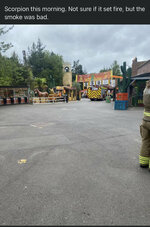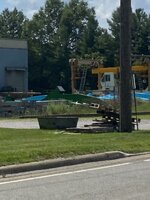RicketyCricket
TS Member
- Favourite Ride
- Taron
Yep, part of the fun of visiting as a kid is having big coasters to look forward to when tall enough on future visits. But I think that may be a dated view now with modern coaster technology.@RicketyCricket it doesn't make it right ... but if you have a ride in a park that has lower demand because it is 1.4m, you need less capacity.
I don't think 1.4m is a bad thing. If most kids are hitting 1.3m between 7-9, having nothing to look forward to in that park from that age doesn't seem right.
Thrilling coasters are way more accessible now, especially on the continent where they seem to lead the way. For example...
Wodan 1.2m
Blue Fire 1.3m
Fenix (Toverland) 1.3m
Lech Coaster 1.2m




